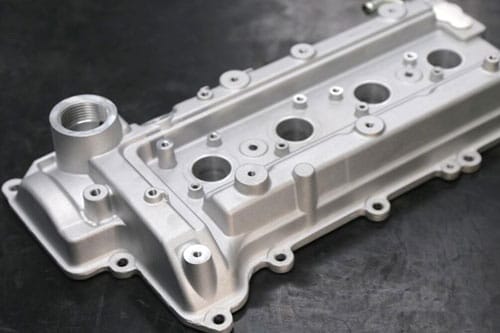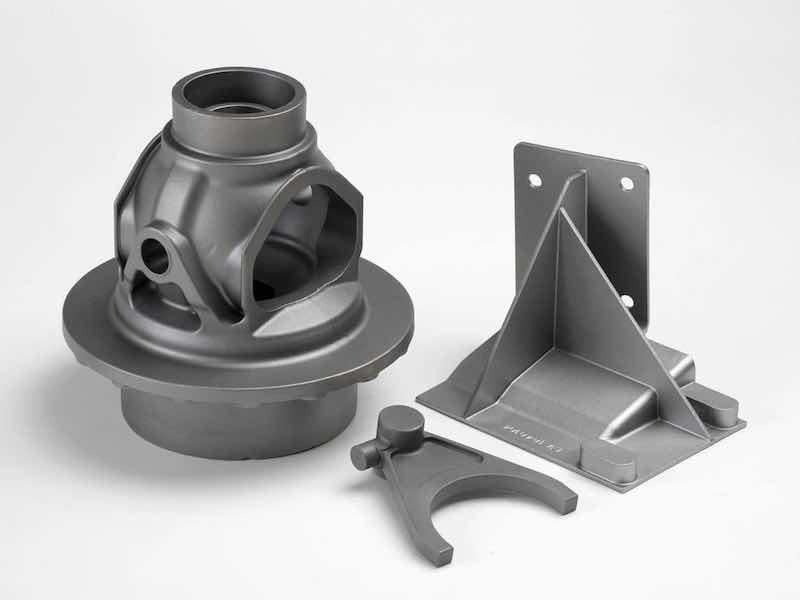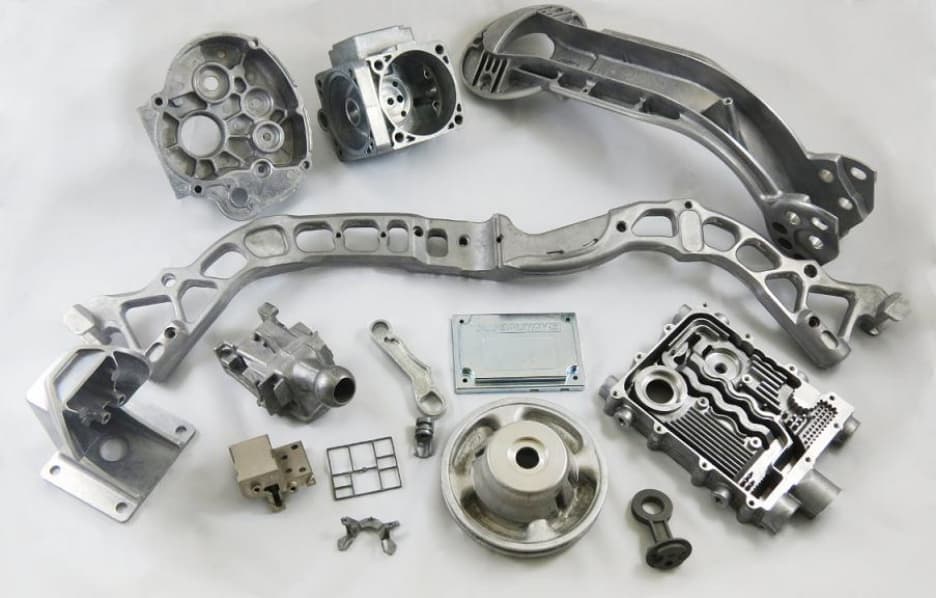How an Aluminum Foundry ensures precision castings
The Crucial Uses Aluminum Foundry in Various Industries and Their Influence
Aluminum foundries function as an essential source within numerous industries. Their durable and lightweight materials considerably boost efficiency in vehicle, aerospace, building, and electronic devices markets. As each sector leverages aluminum's unique buildings, they additionally add to sustainability efforts. This multifaceted impact prompts a much deeper exploration of how Aluminum formed these sectors. What particular advancements and benefits arise from its use?
Automotive Sector Applications
The auto market significantly counts on Aluminum Foundry applications to boost automobile efficiency and performance. Light weight aluminum's light-weight nature adds considerably to sustain economic situation, making it a recommended option for producers intending to reduce emissions and boost total lorry dynamics. Elements such as engine blocks, transmission real estates, and wheels are typically produced via Aluminum spreading procedures, enabling for intricate layouts that fulfill extensive security and efficiency requirements.

Aerospace Innovations

The use of aerospace-grade Aluminum alloys enhances resistance to rust and fatigue, vital for the requiring settings airplane face. Advancements in additive production also enable quick prototyping and personalization of elements, lowering lead times and costs.
Building and construction and Infrastructure
While the construction and framework industries continue to progress, Aluminum factories are progressively identified for their payments to contemporary structure methods. Light weight aluminum's lightweight nature and high strength make it a suitable material for various architectural applications. Shops supply components such as light beams, frames, and frontages that boost the toughness and long life of buildings and facilities projects.
Furthermore, aluminum's rust resistance plays a crucial role in extending the life-span of frameworks exposed to harsh ecological conditions. The energy performance of Aluminum products likewise aligns with sustainable structure campaigns, adding to lower power intake in construction. In addition, innovative casting strategies have actually expanded the style possibilities, enabling engineers and engineers to develop aesthetically pleasing yet useful frameworks.
Electronics Manufacturing
Aluminum factories play a substantial duty in the electronic devices producing industry, where the need for thermally conductive and lightweight materials is vital. Metal Castings. Parts such as warmth sinks, casings, and braces are often generated utilizing Aluminum as a result of its outstanding thermal buildings and capability to dissipate warmth effectively. This is crucial in digital gadgets, where overheating can cause failing and lowered efficiency
The versatility of Aluminum enables intricate layouts and specific machining, which are essential in modern-day electronic devices. In enhancement, aluminum's non-magnetic residential or commercial properties make it appropriate for applications in delicate electronic devices, lessening interference. Light weight aluminum's resistance to rust boosts the durability of electronic elements, guaranteeing durability and reliability.
Sustainability and Recycling Efforts
Given the increasing focus on ecological duty, the Aluminum Foundry industry has actually made significant strides in sustainability and recycling efforts. Aluminum is inherently recyclable, allowing shops to recycle and redeem product with marginal power expenditure contrasted to main production. This closed-loop recycling process not just minimizes waste Resources yet additionally decreases greenhouse gas exhausts, contributing to a more sustainable manufacturing design.
Numerous a knockout post foundries are embracing energy-efficient technologies, consisting of sustainable power sources, to power their procedures. This change not only decreases dependence on fossil gas however additionally boosts general operational performance
Market cooperations are more promoting sustainable practices, such as sharing finest methods and developing ingenious recycling approaches. By focusing on these efforts, the Aluminum Foundry sector is placing itself as a leader in lasting production, straightening with worldwide targets for sustainability while satisfying the demands of different markets.

Regularly Asked Questions
What Are the Key Benefits of Making Use Of Aluminum in Foundry Processes?
The primary advantages of using Aluminum in Foundry processes include its lightweight nature, outstanding rust resistance, high thermal and electric conductivity, and convenience, enabling detailed designs and efficient recycling, eventually boosting total manufacturing performance and lowering costs. - Wisconsin Aluminum Foundry
Just How Does Aluminum Foundry Effect Product Lifecycle Management?
Aluminum Foundry considerably boosts item lifecycle administration by allowing efficient material usage, lowering waste, and assisting in recycling. Its lightweight properties enhance transportation efficiency, while durability extends item life expectancy, eventually contributing to sustainability and cost-effectiveness in production.
Are There Details Obstacles in Aluminum Foundry Manufacturing?
Particular difficulties in Aluminum Foundry production include managing temperature level control, making certain material quality, reducing waste, and adjusting to varying market demands. These elements can impact efficiency, price, and general competition within the industry.
What Safety And Security Procedures Are Necessary in Aluminum Foundry Procedures?
Essential security measures in Aluminum Foundry procedures include personal safety tools, appropriate ventilation, regular devices maintenance, threat interaction, and emergency action training. Executing these methods assurances employee safety and lessens threats connected with high-temperature metal handling.
Just how Does the Price of Aluminum Compare to Other Metals in Foundry Use?
The cost of Aluminum is usually lower than that of steels like copper and titanium, making it an affordable option for several Foundry applications. This price adds to its extensive use across different sectors.
Aluminum foundries serve as a vital navigate to this site resource within various industries. The vehicle sector significantly counts on Aluminum Foundry applications to boost vehicle performance and efficiency. The product's recyclability additionally lines up with the sector's press in the direction of sustainability, as recycled Aluminum needs significantly less power to process compared to main light weight aluminum. Aluminum foundries play a considerable role in the electronic devices producing industry, where the demand for lightweight and thermally conductive materials is paramount. Provided the enhancing emphasis on ecological obligation, the Aluminum Foundry industry has actually made substantial strides in sustainability and recycling efforts.